Asthma is a chronic lung condition that causes the airways to become inflamed, narrow and filled with mucus, making breathing difficult. Although it cannot be cured, you can manage it effectively with the right treatment, education and support from your healthcare team.
What Is Asthma?
Asthma is a long-term inflammatory disease that affects the airways in the lungs. When a person with it, is exposed to a trigger, the muscles around the airways tighten, the airway lining swells and the body produces extra mucus. These changes make it harder to breathe.
Common Symptoms
- Wheezing (a whistling sound when breathing)
- Shortness of breath
- Chest tightness
- Persistent coughing, especially at night or early morning
These symptoms may worsen during exercise, cold weather or when exposed to triggers.
What Causes Asthma?
While the exact cause is not fully understood, it is believed to result from a mix of genetic and environmental factors. It tends to run in families and is more likely to occur in people who have other allergic conditions, such as hay fever or eczema.
Asthma can start at any age. Children and adults may experience different symptoms and even siblings can have varying patterns and triggers.
What Triggers Asthma Symptoms?
Understanding your triggers is key to managing the condition. Triggers can differ from person to person, but common examples include:
- Allergens – dust mites, pollen, mould, pet dander
- Respiratory infections – colds and the flu
- Tobacco smoke – including second-hand smoke
- Cold air or weather changes
- Exercise – especially in dry or cold environments
- Airborne irritants – chemicals, fumes, industrial dust
- Medications – such as aspirin or beta-blockers
By identifying and avoiding these triggers, you can prevent flare-ups and reduce your reliance on reliever medication.
What Is Thunderstorm Asthma?
Thunderstorm asthma is a rare but potentially serious event that occurs when a thunderstorm breaks pollen into tiny particles that can be easily inhaled. This can cause sudden, severe symptoms in people with:
- A history of asthma
- Hay fever or allergic rhinitis
- Poorly controlled respiratory conditions
These events typically happen during grass pollen season (October to December) in parts of south-east Australia. If you are at risk, speak to your GP about preventive steps before the season begins.
How Is Asthma Diagnosed?
Doctors diagnose based on your medical history, symptoms and lung function tests. Since there is no single test for it, your GP will look for signs of variable breathing difficulty and reduced airflow.
Spirometry Testing
A spirometry test measures how much air you can breathe in and out and how quickly you can exhale. It helps confirm whether your airways are narrowed, which is a key feature.
Most adults and children over six years of age can complete spirometry reliably. This test also helps monitor the effectiveness of your treatment over time.
Treatment: What Are Your Options?
Most people manage their symptoms successfully with the right medication. Your GP will tailor your treatment plan based on the severity of your asthma and how often you experience symptoms.
Types of Asthma Medications
- Relievers: These are short-acting bronchodilators used during an attack. They provide quick relief by relaxing airway muscles.
- Preventers: Taken daily, preventers reduce inflammation and make your airways less sensitive to triggers.
- Combination therapies: These inhalers contain both a preventer and a long-acting bronchodilator to manage moderate to severe type.
- Add-on therapies: These may include monoclonal antibodies or other advanced treatments for severe cases.
Always follow your GP’s instructions when using medications and check in regularly to review your treatment plan.
How to Manage Asthma Day to Day
Effective asthma management goes beyond medication. It involves knowing your triggers, using inhalers correctly and following a written action plan.
Key Steps to Manage Asthma:
- Visit your GP regularly for reviews
- Take your preventer medication every day, even when you feel well
- Learn how to use your inhaler and spacer properly
- Identify and avoid your personal triggers
- Monitor your symptoms and peak flow readings
- Follow your action plan for flare-up management
Ask your GP for a personalised written asthma action plan. If your child has asthma, ensure their school, carers and sports coaches also have a copy.
Asthma in Australia: What You Should Know
- Asthma is one of the leading causes of hospital admissions in children
- More boys than girls are affected during childhood, but more women than men have asthma in adulthood
- Indigenous Australians experience higher rates
- People often also suffer from eczema or allergic rhinitis
- Thunderstorm asthma events are rare but can be life-threatening
Conclusion
Asthma can be managed successfully with the right knowledge, tools and medical support. By recognising your symptoms, avoiding triggers, using medications correctly and keeping your action plan up to date, you can live well. At Lakes Family Medicine, we are here to help you breathe easier. Our GPs offer evidence-based care, from diagnosis and education to treatment reviews and emergency plans. Whether you are living with asthma yourself or caring for a child with asthma, we are with you every step of the way.
Learn more about The Lakes Family Medical Centre :




